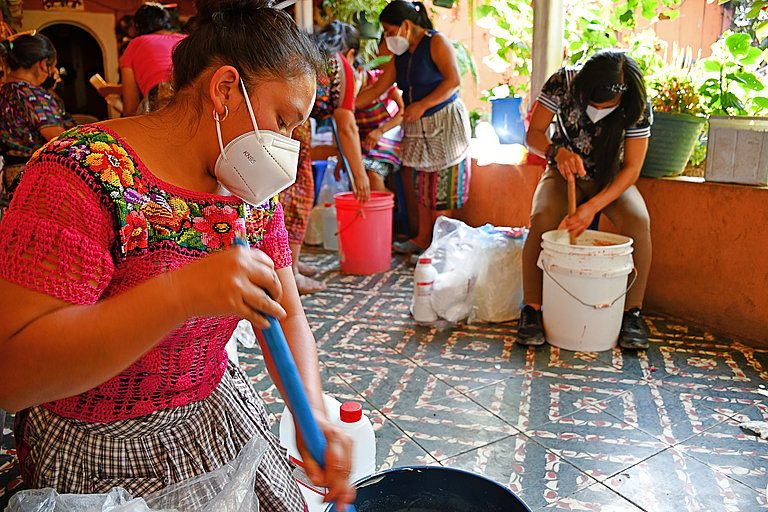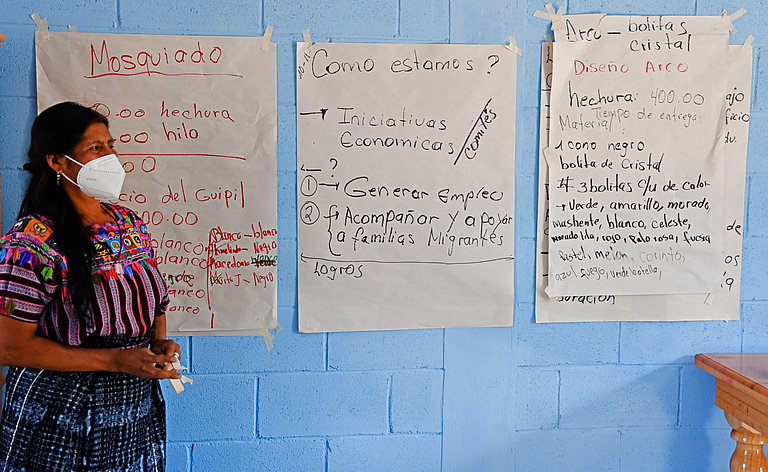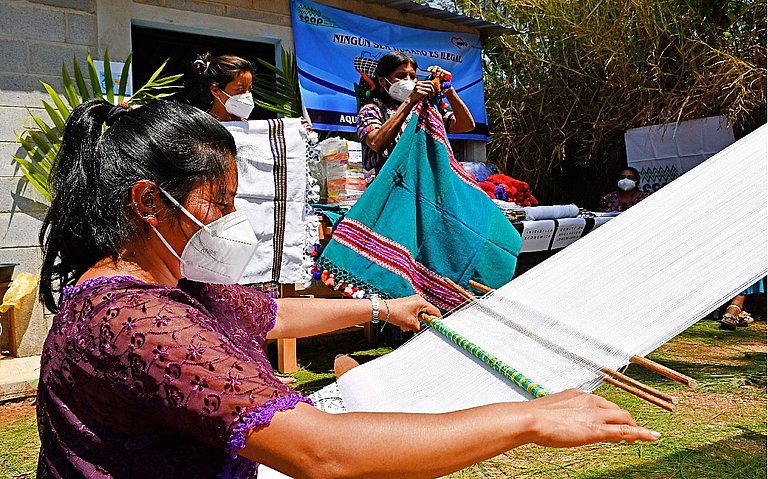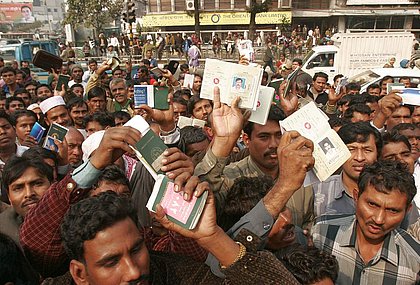The number of female migrants from Guatemala is increasing daily: 350 mostly young, barely qualified Guatemalans travel daily on one of the most dangerous migration routes in the world to Mexico or the USA.
Poverty and violence drive people into flight
In 2018, according to the World Bank, 59.3 percent of the population of Guatemala lived below the national poverty line and 10 million Guatemalans even lived in extreme poverty. In addition, violence which originates from local youth gangs, so-called maras, and domestic violence determine everyday life in Guatemala. In Central America, around 30 percent of young people have experienced some form of violence. In the case of women, the figure is as high as 40 percent and the estimated number of unreported cases is much higher, as many sexual assaults are not reported. That is why 108,000 Guatemalans decide every year to emigrate to the USA. Jorge, a migrant returnee from the municipality of Nentón in the northwest of Guatemala, describes the situation:
For me, it is very important that we address the issue of migration. Many young people plan their migration routes without being aware of their rights and dangers. We have to deal with this issue and educate them.
The Guatemalan project partner ECAP (Equipo de Estudios Comunitarios y Acción Psicosocial) is addressing this issue. ECAP works in two Guatemalan municipalities: San Martín Jilotepeque in the Chimaltenango department and the Nentón border area in Huehuetenango.
Information on the reality of migration for self-determined migration decisions

One of the main goals of the project is to prepare potential migrants and educate them about the migration process. To this end, they will be informed about possible migration routes, their rights and the dangers in workshops or campaigns.The refugees are confronted with attacks by criminal gangs, as the border areas are ruled by drug traffickers. Abductions, torture and killings by armed criminal gangs in cooperation with local authorities or police and migration officers are common threads. ECAP trains migration committees, consisting of community members, to provide young people and other potential migrants with detailed information about the risks of migration and to recommend safe routes if necessary.
Psychosocial support for the processing of migration experiences
But even after a successful migration the emigrants often cannot breathe a sigh of relief, because in many cases they are threatened with deportation to their home country. In recent years, the situation of migrant women has worsened as a result of the USA's tougher immigration policy. Tighter border controls as well as more arrests and deportations are the result of the joint action of the governments of Mexico, Guatemala and the USA within the framework of the "southern border" agreement. According to the Guatemalan Ministry of the Interior, a total of 155,548 Guatemalans were deported from the USA alone between 2016 and August 2019. Together with the local migration committees, ECAP therefore also assists women returning to Guatemala with their social reintegration. Minors returning to their country of origin are accompanied in particular during family reunification. ECAP's work also focuses on psychosocial care. On the one hand, returnees receive individual care in order to be able to process their experiences on the run, and on the other hand they have the opportunity to exchange their experiences with other returnees in self-help groups.
The escape leaves big wounds on the people left behind

Many of the families lose contact with their emigrating relatives. ECAP supports the community members in setting up self-help groups of affected families in which they have the opportunity to exchange experiences, support each other and inform each other. In addition, the project partner helps the families to find their missing relatives. ECAP is building on a large network of non-governmental organisations in Guatemala and Mexico, all of which are dedicated to the issue of migration. ECAP's work thus covers the entire migration cycle.
In order to offer perspectives to the people in the region, ECAP will also integrate income-generating measures into the project. In particular, young people are to be supported in the implementation of small projects, such as the establishment of their own small business. At the same time, a tourism project is to provide an upswing in the entire region and reduce migration figures.
Projectinfo
| Project | Promotion of social structures in the field of migration and human rights in Chimaltenango and Huehuetenango |
|---|---|
| Place/Region | Community Nentón (Department Huehuetenango) and San Martín (Department Chimaltenango), Guatemala |
| Partner | ECAP (Equipo de Estudios Comunitarios y Acción Psicosocial) |
| Target group | Potential migrants, returnees and their families from six communities in Guatemala |
| Activities |
|
| Duration | 2019-2021 |
| Budget | 70.000 Euro p.a. |
| Sponsor | BMZ |

![[Translate to Englisch:] Eine Mitarbeiterin und Partizipierende bei einem Workshop für die Herstellung von Hygieneprodukten (Foto: Carlos Cano/ AWO International) [Translate to Englisch:] Eine Mitarbeiterin und Partizipierende bei einem Workshop für die Herstellung von Hygieneprodukten (Foto: Carlos Cano/ AWO International)](/fileadmin/_processed_/6/3/csm_Carlos_Cano_x_ACCSS_1_1280x800_b24e28b01c.jpg)
